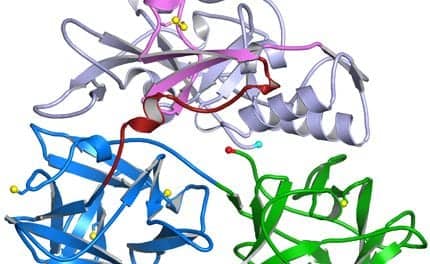According to researchers, the majority of asthma patients rely on daily medicine to control symptoms and many are wary of exercise, fearing that it could induce symptoms.
However, the new research suggests that taking exercise, combined with a healthy diet, could help patients gain better control of symptoms such as wheezing, chest pain and shortness of breath.
“There is increasing evidence that asthma patients who are obese can benefit from a better diet and increased exercise. We wanted to see if non-obese patients with asthma could also benefit,” said Louise Lindhardt Toennesen, MD, PhD, from Bispebjerg University Hospital, Copenhagen, Denmark.
Toennesen and her colleagues worked with a group of 149 patients who were randomly assigned to one of four groups.
One group were asked to follow a diet that was high in protein and with a low glycemic index (low GI). A low GI diet is one that maintains the right levels of sugar in the blood. They were also asked to eat at least six portions of fruit and vegetables per day.
Another group took part in exercise classes three times a week at hospital. These classes included bursts of high intensity activity designed to raise the heart rate, interspersed with more gentle activity.
The third group took part in the exercise classes and followed the diet, while the remaining control group did neither. A total of 125 people remained in the study for the full eight weeks.
Researchers questioned patients about their symptoms and about their quality of life, as well as testing their fitness, and the strength and output of their lungs.
They found that the high intensity training was safe for patients. Although they did not find definite improvement in patients’ lung function, they did find that the combination of diet and exercise improved both symptom control and patients’ quality of life, as well as improving their level of fitness.
On average, those who took part in the exercise and followed the diet rated their asthma symptom score 50% better compared to the control group.
Those patients who only followed either the exercise program or the diet program on average rated their asthma symptom score 30% better compared to the control group, but this result did not reach statistical significance.
“People with asthma sometimes find exercise challenging and this can lead to an overall deterioration in their fitness. Our study suggests that non-obese asthma patients can safely take part in well-planned, high-intensity exercise. It also shows that exercise combined with a healthy diet can help patients control their asthma symptoms and enjoy a better quality of life,” Toennesen explained. “These are important findings since we know that not all patients have good control over their symptoms and consequently can have a lower quality of life. We also know that many patients are interested in whether they can improve their asthma control with exercise and a healthy diet.
Researchers hope to discover which diet and which activities have the biggest impact, to find out if some patients can benefit more than others, and, ultimately, if lifestyle changes can replace asthma prevention medicine.










